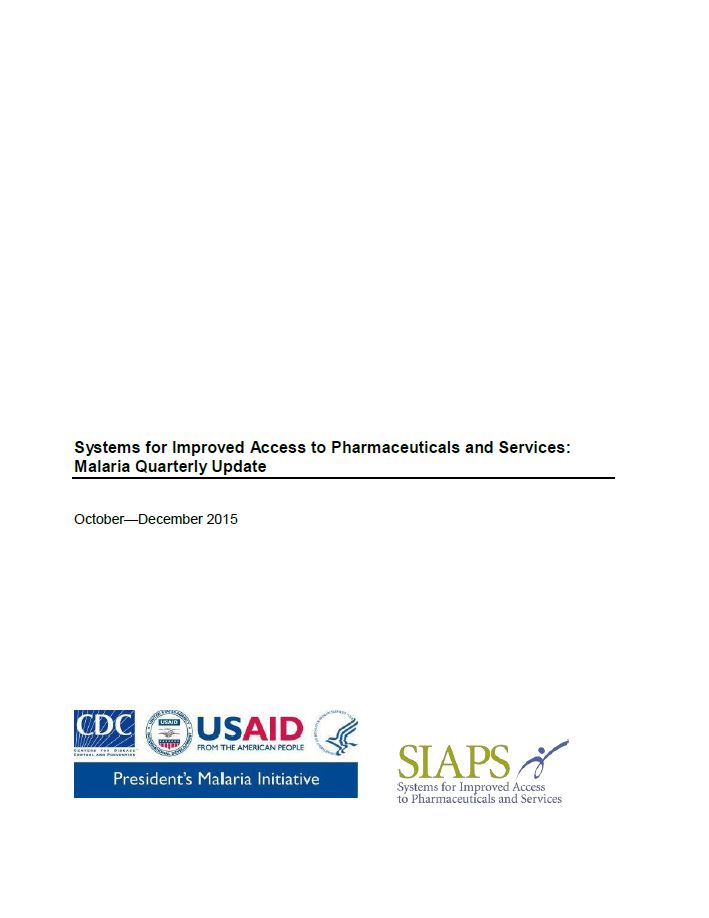
According to the World Health Organization (WHO), the number of malaria deaths malaria mortality rates fell by 48% globally, and the number of malaria cases by 18% between 2000 and 2015. During this period, it is estimated that 6.2 million fewer malaria deaths occurred globally, primarily as a result of the scale-up of interventions. However, much remains to be done. Despite impressive gains in malaria intervention coverage, millions of people still do not receive the services they need.
Working closely with the President’s Malaria Initiative (PMI) in both Washington and PMI focus countries, the US Agency for International Development (USAID)-funded Systems for Improved Access to Pharmaceuticals and Services (SIAPS) Program aims to ensure the availability of quality pharmaceutical products and effective pharmaceutical services in support of PMI objectives. To this end, and based on the PMI’s priorities, SIAPS endeavors to improve pharmaceutical governance, build capacity to manage malaria products while addressing the information needed for managing them, strengthen financing strategies and mechanisms to improve access to malaria medicines, and improve the quality of pharmaceutical services provided to malaria patients.
The SIAPS technical approach emphasizes health systems strengthening with a special focus on improving metrics, monitoring and evaluation (M&E), developing the capacity of local governments and organizations, and increasing country ownership. Through this approach, SIAPS aims to promote the availability and use of malaria products, including artemisinin-based combination therapy (ACT), rapid diagnostic tests (RDT), and medicines for severe malaria. At the country level, SIAPS collaborates with national malaria control programs and Central Medical Stores (CMS) to develop and implement strategies to strengthen pharmaceutical management to prevent and improve case management of malaria. Areas supported by SIAPS include: training; quantification; strengthening supply chain systems, including logistics management information; community and malaria case management; rational use; and medication safety. SIAPS works to strengthen malaria pharmaceutical management at the national level in Angola, Burundi, the Democratic Republic of the Congo (DRC), Ethiopia, Guinea, Mali, Niger, and South Sudan. In addition, SIAPS provides regional support in Latin America.
This report describes the major activities that SIAPS conducted at the global level and in each of the countries and region mentioned above between October and December 2015.


